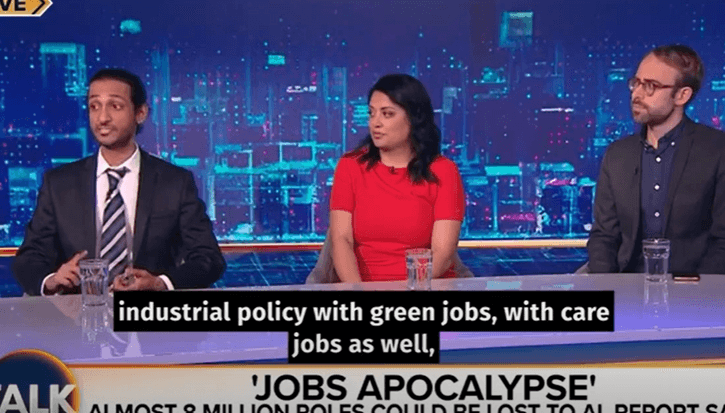Editorial: The winds of change
Article
The financial crisis and its aftermath have delivered major shocks to the party systems of continental Europe: witness the rise of new left parties such as Podemos in Spain and Syriza in Greece, and the surge in support for far-right populist parties such as the Sweden Democrats and the Front National in France. Britain's first-past-the-post system has immunised it to these convulsions in the past, but now it too is experiencing a major political recomposition. A new, multiparty system is being created, forged from the twin processes of the secular decline of the main social class voting blocs and the more recent territorial realignment sparked by the rise of civic Scottish nationalism and Eurosceptic Englishness, given expression by the SNP and Ukip respectively.
Are these merely the simulacra of democratic energy, symptoms of the decline of representative democracy rather than signs of its rebirth? Has so much been power been sucked out of national parliaments and popular democratic institutions that we are now living in 'post-democratic' times? Colin Crouch, one of the leading academic voices in this school of thought, opens this edition with an important contribution to debates around the Transatlantic Trade and Investment Partnership (TTIP). Moving beyond arguments over the particulars of the negotiations between the EU and the US, he locates TTIP within the broader concept of a move towards a post-democratic society, in which the formal institutions of democracy survive but, as power migrates to disconnected business and political elites, are no longer a real source of decision-making or the focal point of political dynamism.
On the one hand, Crouch argues that TTIP represents an exemplar of this trend towards post-democracy, as areas of public policy are transferred into trade agreements that are negotiated behind closed doors and made enforceable in tribunals or courts. Yet, on the other, he also posits that attempts to expand this process of commodification into the public sphere and to withdraw economic activity from political steerage will inevitably meet popular resistance. Social forces strike back, albeit often inchoately. In the particular case of TTIP, Crouch argues that civil and political mobilisation might still be capable of shaping a transnational agreement in a way that both expands world trade and protects the integrity of European social welfare institutions. We shall see in the next year whether this opportunity is taken.
Looking back, 2014 has been marked by uncertainty and turbulence: war in Ukraine and the Middle East, economic stagnation in Europe, and health crises in west Africa. Predicting what lies ahead might seem a fool's errand; nonetheless, Juncture is pleased to present 10 predictions for 2015 by leading commentators such as Philippe Legrain, Ann Pettifor, Martin Jacques, Matthew Taylor and Eliane Glaser. The self-destruction of the eurozone and the stagnation of the west are recurrent themes, as is the continued shift of economic and political power to the east. Ranging across the political landscapes of India, China, the EU and Scotland, and asking what forms of technological, ideological and organisational change we should expect over the next 12 months, the collection is an insightful guide to what could lie ahead.
The future and self-identity of Germany is the focus of Andreas Kluth's essay. He suggests that if the first decade after reunification was focused on integrating a unified Germany, and the second on reviving its moribund economy, the third has seen Germany confront a series of external crises that nonetheless demand deep internal changes. Kluth outlines how Germany and its people see this evolving role in Europe and the world, and dissects the nation's new-found comfort in its 'cool power'.
If Merkel's electoral dominance of Germany and pre-eminence in Europe is unassailable, on the other side of the world, the two-decade-long hegemony of the political left in Latin America – reinforced by recent victories in Brazil and Uruguay – is similarly striking. Rick Muir examines what underlies this long-running success story, and considers what lessons the presently enfeebled social democratic parties of Europe could learn from it, while in a companion essay Ben Dangl looks in depth at the success of Bolivia's Movement Towards Socialism party under president Evo Morales. In sharp contrast to the hollowed-out party systems of advanced democracies, Latin America's political landscape is replete with political organisations of the left that retain deep and sustained engagements with civil society, and are embedded in movements that reach far beyond the institutions of the state and the electoral cycle.
The marshalling of civil, economic and political coalitions capable of shaping the UK's political economy in a more progressive direction – and what institutional innovations could achieve that goal – is the focus of Adam Leaver and Karel Williams' article, and of our contribution from Mathew Lawrence. Leaver and Williams argue that since 1979 successive British governments have embraced an economic model that has produced systemic failure and mismanagement in many business sectors. Instead, they argue for a renewed focus on improving the productivity and wages of the foundational economy: the sector that supplies mundane but essential goods and services, including such unglamorous industries as food processing, retailing and health care. Meanwhile, in an extended essay, Lawrence argues for the democratisation of the institutions of the UK's political economy – rather than just the rearguard defence of 20th-century institutions – and sets out the types of alliances, policies and politics that could bring about such a change.
In their different ways, each of these contributions brings political economy – the interpenetration of political and economic institutions – back into focus. Whether in relation to the evolution of the state-directed capitalisms of the east, or the struggle to shape a new post-crash economy in the west, 2015 will be a year in which questions of political economy loom large.
Mathew Lawrence, Guy Lodge and Nick Pearce
Related items

Forging ahead: Deciding the direction of IPPR's Migration Policy Unit
In our last blog post for the Migration Policy Unit we shared our new way of working as we endeavour to be inclusive and transparent in our policymaking process. In this blog we set out what our first and flagship project is for the policy…
Who gets a good deal? Revealing public attitudes to transport in Great Britain
Transport isn’t working. That’s the message from the British public. This is especially true if you’re on a low income, disabled or living in the countryside. The cost of living crisis has exposed the shortcomings of our transport system,…
Bhargav Srinivasa Desikan on TalkTV discussing AI
IPPR's Bhargav Srinivasa Desikan on TalkTV discussing his new report on the impact of generative AI on the UK labour market.